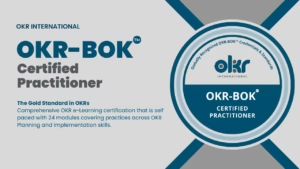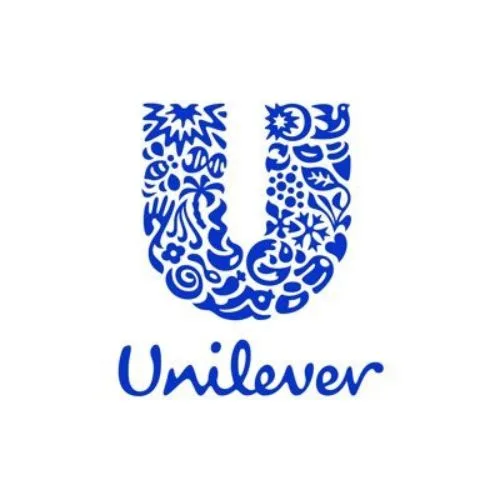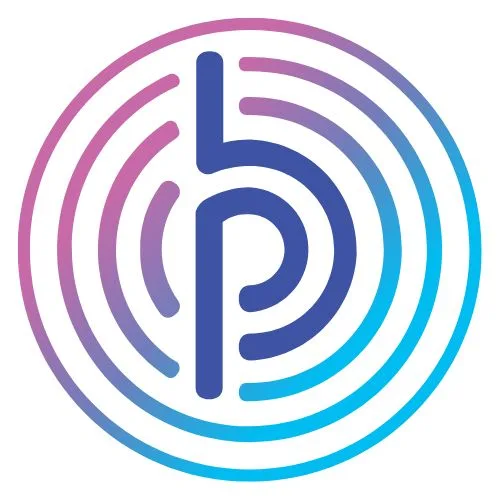- DISC Based Workshops
DISC Insights for First-Time Managers
Navigating Leadership with Confidence and Insight.

People Trained
DISC Reports - Customer Service Version
Industry Sectors Covered
Companies using the highly acclaimed TTI Success Insights DISC Reports
DISC Insights for First-Time Managers
This comprehensive workshop is designed to equip first-time managers with essential leadership skills, emphasizing the use of DISC profiling to understand and effectively manage diverse team dynamics. Participants will learn to adapt their management techniques to suit various individual needs, fostering a more cohesive and efficient team environment. The session aims to empower new managers with the confidence and tools necessary for successful team leadership, ensuring they are well-prepared to navigate the complexities of their new roles with insight and effectiveness.
Course Content
“First-Time Manager’s Program Using DISC” is a tailored program specifically created to strengthen the leadership capabilities of new managers through the practical application of the DISC assessment model. By leveraging DISC profiling, new managers will learn how to modify their leadership approach to suit different individuals, leading to more effective team management and positive work environments. This Management Development Program (MDP) aims to equip first-time managers with the essential tools and confidence needed to lead diverse teams successfully and navigate their managerial roles with greater ease and effectiveness.
Introduction to DISC
Brief introduction of DISC, its construct and history.
DNA of DISC Assessment
Dominance, Influence, Steadiness & Compliance.
Self-Discovery using DISC
Discovering personal strengths and weaknesses using your own DISC profile.
Leadership & DISC Styles
Develop leadership strategies that align with different DISC styles.
High-Performing Teams with DISC
Use DISC insights to create and manage high performing teams.
Goal Setting with DISC Styles
How to set goals, delegate, coach and provide feedback using DISC styles.
Performance Management
Using the SAFE model of Performance Management with DISC.
Post Training Action Planning
Developing personal action plans for First Time Managers covering the first 90 Days.
Who should attend?
- First Time Managers
- Aspiring Leaders
- Recently Promoted Managers
- Project Managers
- Small Business Owners
- Cross-Cultural Managers
Key benefits
- Enhanced Communication
- Improved Team Dynamics
- Effective Conflict Resolution
- Increased Self-Awareness
- Leadership Development
- Better Decision Making
Course methodology
- Instructor-led Facilitation
- Cohort Learning - Synergogy
- Case Work & Scenarios
- Interactive Real Play
- Personal Reflection and Action Planning
Course materials
- Personal DISC Profile Report
- Participant Workbook
- Case Study Booklets & Handouts
- Ready Reckoner Laminates
- Personal Action Plan Template
Schedule a 30 minute call to discuss your needs.
Choose from a Range of customizations
Choose from a range of solutions to suit your every need. Our course can be customised to your industry or business unit context. What’s more, we are happy to deliver this course face to face or in virtual, instructor-led formats.
Other Courses Using DISC
Enhance EQ
Enhance your Emotional Intelligence (EQ) and interpersonal skills using the DISC framework, fostering self-awareness and empathetic connections.
Team Building
Boost team synergy and collaboration by applying the DISC framework, enhancing understanding and communication within your team.
Sales Training
Elevate your sales effectiveness by integrating the DISC framework, honing your ability to understand diverse customer profiles and communicate persuasively.
Customer Service
Enhance your customer service skills by applying the DISC framework, enabling better understanding of customer behaviors & improving interaction quality.
Personal Development
Advance your personal development by utilizing the DISC framework to deepen self-understanding and enhance your interpersonal relationships.
Leadership Coaching
Foster personal growth by leveraging the DISC framework, enhancing self-awareness and interpersonal skills for holistic personal development.
Communication Skills
Improve your communication skills through the DISC framework, fostering clearer understanding and more effective interactions with others.
Conflict Management
Improve your conflict management skills through the DISC framework, Transform Conflict into Collaboration using proven methods.
Start your journey with Synergogy

Frequently asked questions
Everything you need to know about First Time Manager using DISC.
First-time managers are individuals who have transitioned into a leadership role for the first time, taking on the responsibility of overseeing and guiding a team. This role often includes new tasks such as setting goals, delegating tasks, motivating staff, and evaluating performance. The shift from being an individual contributor to a manager requires developing new skills and adapting to a position of influence and decision-making.
First-time managers are critical to the operational success of any organization, as they serve as the link between the workforce and higher management, and their development often reflects in the performance of the teams they lead. Effective training for these managers is crucial as it lays the foundation for their leadership style and effectiveness, ultimately impacting the organization’s overall performance and culture.
New managers often confront a variety of challenges as they transition into their roles:
- Overconfidence: Some may overestimate their readiness, impacting their decision-making and leadership style.
- Managing Former Peers: Transitioning from peer to leader within the same team can be complex, affecting relationships and dynamics.
- Insufficient Training: New managers may not receive enough training or resources to feel fully equipped for their responsibilities.
- Lack of Experience: Without prior managerial experience, new managers might struggle with the nuances of their role.
- Organizational Focus: Shifting from a personal or team-centric view to an organization-wide perspective requires adjustment.
- Delegation and Trust: Learning to delegate effectively and build trust with team members is a critical skill that can be challenging to master.
- Accountability: Holding team members accountable for their work can be difficult, especially for those new to a managerial position.
- Gaining Team Support: Earning the support and respect of new teams is essential for leadership success.
- Balancing Workloads: New managers must learn to balance their increased workload with their managerial duties.
- Coaching Others: Developing the ability to coach and nurture the growth of team members is a challenge that comes with the role.
A first-time manager training program is an organized educational initiative crafted to equip new managers with essential leadership competencies. Its primary purpose is to facilitate a smooth transition from the role of an individual contributor to that of a manager. The program comprehensively addresses various facets of management, including effective leadership practices, communication strategies, and essential managerial skills, ensuring that newly promoted managers are prepared to undertake their supervisory duties successfully.
First-time manager training is essential for organizations as it provides a foundation for new leaders to transition smoothly into their roles, ensuring business operations continue without interruption. This training is critical for enhancing leadership skills that are necessary for effectively managing teams, leading to increased productivity. When managers are well-trained, they are more capable of creating a work environment that promotes employee engagement, which can result in reduced staff turnover by fostering job satisfaction.
Training new managers also develops their abilities in team building, conflict resolution, and strategic decision-making, all of which are aligned with the company’s business goals. A consistent approach to leadership across the organization ensures that managerial practices are effective and uniform. Moreover, it prepares managers to adapt to change and uncertainty, upholding the organizational culture and aiding in succession planning. Educated managers are more adept at identifying and mitigating risks, thus boosting team morale and establishing a continuous culture of improvement within the leadership ranks. All these factors underline the importance of first-time manager training as an investment in the future success of an organization.
The implementation of a First Time Manager Training Program is a strategic initiative designed to equip newly appointed managers with the skills and knowledge necessary for their new leadership roles. This program is a critical investment in human capital that promises to refine managerial competencies, align leadership practices with organizational goals, and enhance overall team performance. Below is a concise blueprint for rolling out a robust training program for first-time managers:
- Needs Assessment: Begin by evaluating the specific needs and challenges faced by new managers in your organization to tailor the training accordingly.
- Define Learning Objectives: Establish clear and measurable goals that the training program aims to achieve.
- Customization and Tailoring: Adapt the training content to meet the unique demands of your organization and the roles of the first-time managers.
- Select Training Methods: Choose the most effective training methodologies, whether it be in-person workshops, online modules, or blended learning.
- Develop Content and Materials: Create engaging and informative training materials that align with the learning objectives.
- Engage Stakeholders: Involve senior management and other key players to gain support and ensure alignment with business goals.
- Identify Facilitators or Trainers: Select experienced trainers or facilitators who can effectively deliver the program and guide new managers.
- Schedule Training Sessions: Plan the training calendar, ensuring it accommodates the participants’ schedules and organizational workflow.
- Communicate Program Details: Clearly inform prospective participants about the program’s objectives, schedules, and expectations.
- Deliver Training: Execute the training sessions, maintaining a focus on the defined objectives and learning outcomes.
- Incorporate Interactive Elements: Use interactive activities such as role-playing or group discussions to enhance engagement and learning.
- Assessment and Feedback: Conduct assessments to gauge understanding and gather feedback to refine the training experience.
- Post-Training Support: Provide resources and support to managers after the training to help apply their new skills on the job.
- Evaluate Program Effectiveness: Measure the training program’s impact on performance and managerial effectiveness.
- Iterative Improvement: Use the feedback and evaluation data to continuously improve the training program.
- Recognition and Celebration: Acknowledge the managers’ completion of the training, reinforcing their achievement and motivation.
- Continuous Improvement: Commit to ongoing development, ensuring managers continue to grow and adapt to new challenges.
A comprehensive first-time manager training program should cover a breadth of topics essential for effective leadership:
- Inclusive Workforce: Training on fostering diversity and creating an inclusive work environment.
- Team Building: Strategies for building strong teams and nurturing trust among coworkers.
- Conflict Resolution: Techniques for dealing with conflicts within the team effectively.
- Talent Development: Identifying and nurturing individual talents within the team.
- Leadership Styles: Understanding different leadership styles and identifying the most effective approach for various situations.
- Project Management Success: Key practices and tools for successful project management.
- Soft Skills Development: Enhancing interpersonal skills crucial for leadership.
- Feedback Culture: Building a culture of constructive feedback and moving away from a blame culture.
- Leadership Skills Development: Core leadership competencies necessary for managing teams.
- Communication Training: Effective communication techniques for various managerial scenarios.
- Team Management: Best practices for managing team dynamics and performance.
- Time Management: Techniques for prioritizing tasks and managing time efficiently.
- Delegation Skills: Learning how to delegate tasks appropriately to team members.
- Performance Management: Understanding how to assess and manage team performance.
- Adapting to Change: Navigating and leading through organizational changes.
- Emotional Intelligence: Developing the ability to understand and manage one’s own emotions and those of others.
- Ethical Leadership: Upholding and promoting ethical behavior within the team.
- Mentorship and Coaching: Skills for mentoring and coaching team members effectively.
- Self-Reflection: Encouraging ongoing self-assessment for continuous personal and professional growth.
Ongoing training for first-time managers is highly beneficial as it strengthens their capacity to build cohesive and efficient teams, and enhances their time management skills, which is crucial for prioritizing tasks effectively. It leads to increased employee engagement due to improved leadership practices and promotes the development of strategic decision-making skills for better business outcomes. Ethical leadership is reinforced, emphasizing integrity and ethical considerations in all actions.
Such training eases the transition into leadership roles, which can reduce stress and increase the likelihood of success. It supports the continuous development of leadership skills to tackle various challenges and increases managers’ confidence in their decision-making and leadership abilities. Communication skills are refined for greater clarity and impact, while understanding and managing team dynamics is improved, resulting in stronger manager-employee relationships.
Ongoing training also contributes to reducing employee turnover by creating a more positive work environment and driving higher productivity through effective management. It encourages strategic thinking for long-term planning and equips managers with conflict resolution strategies to handle disputes amicably. Managers become more adaptable to change and uncertainty, fostering a culture of continuous personal and professional development.
Uniform leadership practices across the organization are ensured, and a pipeline of capable leaders for future roles is established. It also enhances the organizational culture, aligning it with the organization’s values and goals, while focusing on the growth and development of team members. Additionally, it has a positive impact on team morale and job satisfaction and improves the ability of managers to give and receive constructive feedback. Lastly, it provides managers with the necessary tools to manage organizational changes effectively.
To measure the effectiveness of first-time manager training, organizations can adopt a comprehensive strategy that includes evaluating against performance metrics, monitoring changes in team productivity, and assessing employee engagement levels. The overall performance of managers in their leadership roles can be reviewed, complemented by 360-degree feedback from subordinates, peers, and superiors to gain a well-rounded view of each manager’s impact.
Key Performance Indicators (KPIs) specific to managerial duties are instrumental in gauging particular outcomes, while employee retention rates can serve as an indicator of the managerial environment. Observing turnover rates before and after training provides insights into the training’s immediate impact, while skill application in real-world scenarios highlights practical efficacy. Formal observations and evaluations offer direct assessments of managerial conduct, and case studies can pinpoint training effectiveness in situational contexts.
Feedback and surveys from training participants are valuable for understanding the perceived value of the training, with post-training and follow-up surveys shedding light on both immediate and long-term training effectiveness. Quantitative assessments help measure skill acquisition, and comparative pre- and post-assessments reveal knowledge gains.
Narratives such as testimonials and success stories add a qualitative dimension, offering personal accounts of experiences and successes post-training. Monitoring career development tracks the professional growth of participants, and observing promotion rates and internal mobility within the organization can indicate the training’s success in preparing managers for upward trajectories.
Self-assessments by managers on their progress, combined with goal setting, can foster self-awareness and accountability in applying new skills. Peer and mentor feedback, as well as mentor evaluations, offer additional perspectives on a manager’s performance. The overall organizational impact of the training, such as its influence on the company culture and its correlation with business results like revenue growth or cost savings, is also a critical measure. Lastly, conducting follow-up assessments after a set period can provide insights into the sustained impact of the training program.
Participants in First-Time Manager (FTM) training can expect to achieve a comprehensive set of outcomes that will bolster their managerial capabilities. Essential leadership skills development is a core focus, equipping participants with the competencies needed for effective team guidance. Communication skills are also enhanced, ensuring clear and impactful interactions with team members and other stakeholders.
The training provides insights into team building and management, fostering an understanding of how to assemble and sustain a high-performing team. Delegation skills are refined, enabling efficient task distribution while maintaining productivity. Time management and prioritization become sharper, aiding managers in navigating their responsibilities smoothly.
Conflict resolution strategies are a critical takeaway, providing managers with the tools to address workplace conflicts positively. Performance management techniques are taught to help managers drive and assess their team’s success. Training also prepares managers to lead confidently through change, embracing adaptability as a key leadership trait.
Ethical leadership principles are instilled, ensuring that managers lead with integrity in the workplace. Additionally, managers learn mentorship and coaching skills, allowing them to support the growth and development of their team members.
The training cultivates a mindset of self-reflection and continuous learning, which is vital for ongoing personal and professional development. Employee engagement strategies are covered to help enhance team morale and productivity. Managers also learn to align team goals with the broader organizational objectives, ensuring a cohesive direction.
Confidence building is another fundamental outcome, with managers becoming more self-assured in their decision-making and leadership abilities. The training also facilitates networking, providing a platform for peer support and shared learning experiences. Finally, it contributes to career development by equipping participants with improved managerial skills that can accelerate their professional trajectory.
First-Time Manager training is designed for a diverse group of individuals who are preparing to take on managerial responsibilities for the first time, or who are in early stages of their leadership roles:
- Newly Promoted Managers: Professionals who have recently been promoted to managerial positions.
- Supervisors or Team Leads: Team leaders who are transitioning into formal management roles.
- Emerging Leaders: Individuals identified within an organization as having the potential to take on leadership roles.
- Individual Contributors with Leadership Aspirations: Employees aiming to advance into management.
- High-Potential Employees: Staff members recognized for their capability and potential for leadership.
- Employees in Succession Planning Programs: Those being prepared for advancement as part of an organization’s succession strategy.
- Cross-Functional Team Leaders: Professionals leading teams across different departments or specialties.
- Front-Line Supervisors: Individuals overseeing front-line employees and requiring managerial skills.
- Technical Experts or Specialists: Subject matter experts who are taking on leadership roles within their areas of expertise.
- Industry-Specific Managers: Those stepping into management in specialized industries who need targeted leadership skills.
- Small Business Owners: Entrepreneurs who need to acquire managerial skills to run their businesses effectively.
- Leaders in Nonprofit Organizations: Individuals assuming management roles in the nonprofit sector.
- Those with Limited Leadership Experience: Professionals who have had minimal exposure to leadership roles and seek foundational training.
Yes, there are various online training options available for first-time managers:
- Online Courses and Workshops: These provide comprehensive learning experiences with the flexibility of self-paced study.
- Webinars and Virtual Workshops: Live sessions offer real-time interaction with instructors and peers.
- Corporate Learning Platforms: Many organizations offer tailored learning paths for managers on their internal platforms.
- Leadership Development Programs: Structured programs that focus on cultivating leadership skills and strategic thinking.
- E-Learning Modules: Short, interactive online lessons focusing on specific managerial skills.
- Interactive Simulations: Virtual scenarios that allow managers to practice decision-making and problem-solving.
- Video-based Training: Engaging video content that covers a range of managerial topics.
- Podcasts and Audio Courses: Convenient audio formats for learning on the go.
- Digital Books and Resources: A wealth of written content that can be accessed online for in-depth study.
- Mentorship Platforms: Online services that connect managers with experienced mentors for guidance and support.
First-time manager training can indeed be tailored to meet the unique needs of a specific organization. This customization can involve adjusting the content to focus on areas most relevant to the organization’s operations and goals, ensuring the training aligns with and reinforces the organization’s culture. It can also integrate the organization’s specific policies and procedures.
Training can be aligned with the leadership competencies and expectations unique to the organization and be made relevant to the industry’s specific challenges. It can complement and build on existing training programs and use real-life organizational case studies for practical learning experiences.
Different learning formats can be offered to suit the organization’s structure and employee learning preferences. Feedback mechanisms can be established for ongoing improvement of the training program. Internal resources and expertise can be leveraged to enhance the content, and the training can reflect the organizational structure, decision-making processes, and communication flows.
Additionally, tools and resources provided can be context-specific, offering practical applications within the organization’s operational framework. This level of customization ensures that the training is not only effective but also directly applicable to the managers’ daily responsibilities and the organization’s long-term success.
Still have questions?
Can’t find the answer you’re looking for? Please feel free to write to us.
Our Blog

OKR-BOK™ Certified Practitioner: The #1 OKR E-Learning Certification
OKR-BOK™ Certified Practitioner: The #1 OKR E-Learning Certification for Strategy Professionals For professionals committed to mastering strategy execution, the OKR-BOK™ Certified Practitioner

Best AI Legal Certification
Explore the Best AI Legal Certification to enhance your legal practice with artificial intelligence tools

Best AI Certification for Designers
Explore the Best AI Certification for Designers to enhance your skills and stay relevant in

Best AI Certification for Educators
Explore the Best AI Certification for Educators and enhance your teaching skills to meet the




















